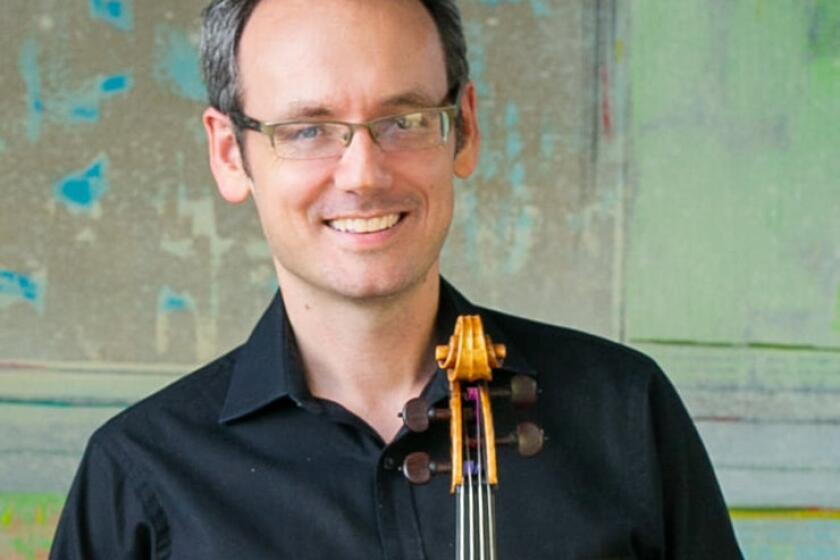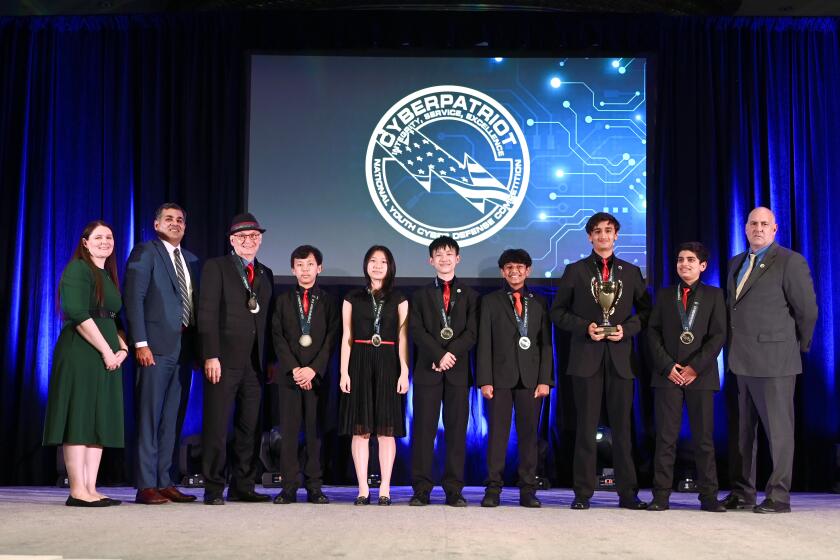Andre LeCault Helping veterans find avenues
By Elizabeth Marie Himchak
Since retiring in 2005, Rancho Bernardo resident Andre LeCault has become more active in veterans’ organizations, something he said is important to help younger war veterans.
“I recognize the value of these clubs,” LeCault said. “When I got out of the military there was nothing for a Vietnam veteran. I want to make sure there is something for current veterans coming out so they find as many avenues (as possible).”
He belongs to Veterans of Foreign Wars Post 7766, Military Order of World Wars Gen. J.P. Holland Chapter, Military Order of the Purple Heart Association, Disabled American Veterans, U.S. Army Ranger Association and Counterparts — an association of advisers in Southeast Asia and their foreign counterparts.
Through these he has spent countless hours performing community service. He plays bingo with patients at the Veterans Administration hospital, helps with fundraisers benefiting veteran causes and projects, gives JROTC presentations and he and his wife, Dorene, help each year at Stand Down near Balboa Park, which over three days helps more than 1,000 homeless veterans.
“It’s sad to see so many who need help,” LeCault said about Stand Down. “I’m glad to be able to do something to help out. I wish the effort could go on all year long.”
LeCault was born a Canadian but as a teenager moved to the United States in 1959 with his parents and became a citizen as a young adult. He said he chose to join the U.S. Army at age 22 because he “saw the merits” of the war in Vietnam.
After basic training he was selected to attend Officer Candidate School. Upon being commissioned a second lieutenant, he received additional training in Fort Carson, Colo., attended Ranger school and later jungle warfare training in Panama before heading to Vietnam in 1967 for his tour.
LeCault said at first he was a forward observer, but later military officials decided to put his ability to speak French to use and he was reassigned to be a military adviser with the Regional Force in Vietnam.
“Between my English and French and broken Vietnamese and my counterpart’s Vietnamese, broken French and broken English, we got along in French,” LeCault recalled. “We had no artillery support, no air support, no reinforcement and we totally depended on the local Regional Force/Popular Forces for security. We were expected to live off the local economy, and we did, but we did an awful lot of scrounging for food.”
When his military service concluded LeCault came home to a country that provided no follow-up treatment for veterans and he did not know his benefit options. “A lot of Vietnam veterans were ignored for a long time,” he said.
LeCault said now more is done for those with post-traumatic stress disorder and it is important today’s troops be made aware of their options and benefits. “For these returning heroes, not paying attention to them is not a good thing,” he said.
While LeCault had a 35-year career at software engineering firms with Navy and Air Force contracts, he said some employers are hesitant to hire veterans because of misconceptions.
“Veterans really make good employees,” he said. “They have faced tremendous challenges and tasks as warriors. When they apply for a job you can trust they will be on time because it is all part of their training. ... Not all suffer from PTSD.”
As for Veterans Day, he said it gives everyone an opportunity to give thanks to all veterans for their services to the country and sacrifices they made. This also sets an example for future generations who volunteer for military service.





